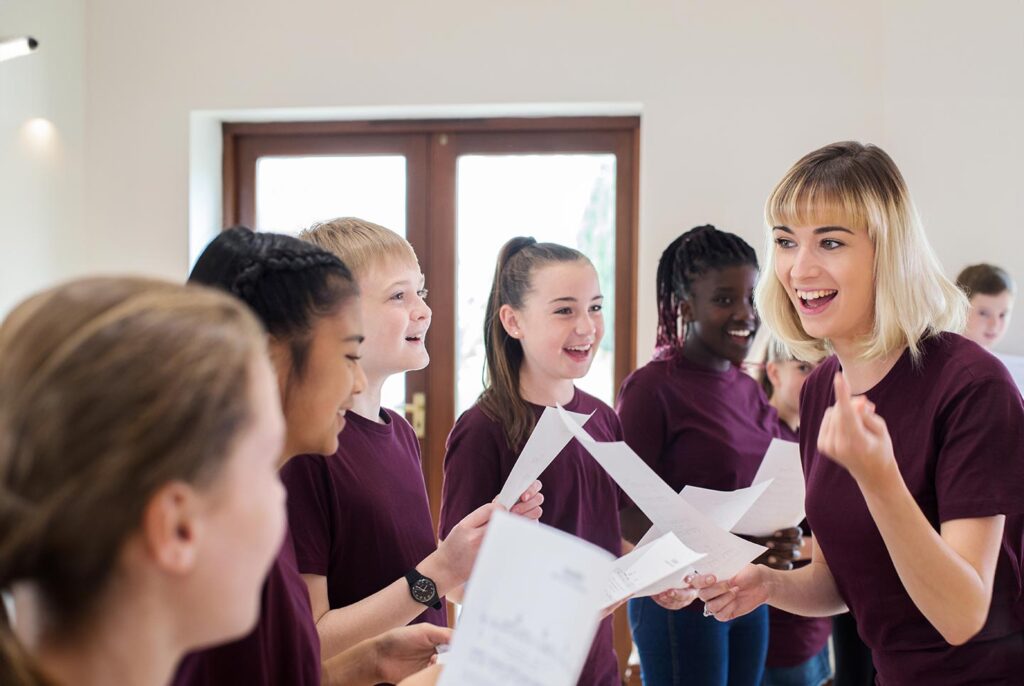In December 2021, we hosted a webinar with Sam Cantrell – a qualified accountant specialising in the performing arts sector, and owner of In For A Penny Bookkeeping Services.
Sam, who also runs her own dance school, expertly answered the many tax-related questions posted by dance studio owners and teachers, gymnastics club managers and coaches, drama clubs and cheerleading staff.
Here’s what Sam said:
Expenses – what is allowed and what isn’t?
The answer to this is from an arts point of view but this is a broad question and can be applied in a broad sense.
You can add any kind of expense related to your business that touches upon physical and digital expenses. So, for example, hiring halls or studios, heat and electricity bills, memberships to exam boards, and music subscriptions such as Spotify and iTunes. And, of course, from the point of view of a dance school or cheerleading or gymnastics, there are shows and exams-related expenses.
With shows and exams, it’s common practice – and a very good idea – to have a separate bank account where all of the fees go directly to the exam board. In case you are working from home, which has become increasingly common in the last few years, you can also claim a percentage of your bills, such as heating, lighting, telephone, broadband, and water.
Of course, you’ll have to calculate your daily usage within your home and separate it from your personal usage. There are also expenses related to transport, such as cars used as business assets. You can add all your expenses such as car tax insurance, petrol, mileage, any wear and tear, as well as maintenance or repair jobs. If you’re unsure, you can present an honest estimate of your expenses.
Sole trader or limited company? How might people decide or what factors might they include when choosing how to set themselves up?
You’re likely to be a subcontractor working for a dance, gymnastics, or cheerleading school. So, in that case, there is no sense in becoming a limited company. From a tax point of view, it depends on whether you are earning a certain amount of money to even consider becoming a limited company.
The dance school I own, for example, is quite small and I’m the sole trader so I don’t earn a massive amount of income from it. There’s no point in it being a limited company because I would have to pay 19% of tax on my profits when, at the moment, it is definitely under the threshold of personal allowance.
A lot of you will probably be under that threshold of your personal allowance as well. And even if you are over it, there is still no point in being a limited company. So the difference between a sole trader and a limited company is liability.
With a sole trader, you are personally liable for anything that happens in that company and are in danger of losing your own personal assets. With a limited company, the liability remains within the company and so, only company assets are involved. You could move to a limited company when you reach about £30,000 to £40,000 in profit. That’s where the tax efficiency starts so at that point, you should be speaking with your accountant about making the transition.
Should I be VAT registered?
VAT registration is such a horrible area. When your turnover reaches £85,000, you should technically become VAT registered. These are the overall rules but if you are a sole trader and you take the classes yourself, those classes are VAT-exempt – they don’t go towards the VAT registration threshold. If you have subcontractors working for you or employees that work for you, only their income from classes will go towards the VAT threshold.
If you are near that VAT threshold and a sole trader, if you take most of the classes and you have teachers, you need to split that income. In turn, if you are a limited company, as soon as you reach the £85k threshold, then you have to become VAT registered. VAT thresholds are also something to be considered if you want to become a limited company.
Can you explain the Making Tax Digital changes coming in 2024?
There has been talk of making tax digital for quite a long time now. And there is encouragement for both limited companies and sole traders to make the shift to digital. The prospect was to do that in 2021, but now, due to many factors such as COVID, this deadline has been pushed back to 2024.
Having your records online on accounting software makes everything so much easier. I still have clients who bring a stack of paperwork and we have to put all that into an Excel spreadsheet – the whole process is so taxing! It’s just a case of having a look around at accounting software and moving from manual records into the world of online accounting software.
It is important to start looking at accounting software even though the final switch will occur in 2024. Have a look at software such as Xero and Wave; the first is very user-friendly and ideal for bigger schools, while the second is good for smaller schools.
Should I be worried about IR35?
HMRC has a tool you can use to see if you should be worried about IR35, but if you are a subcontractor, working for more than one place, such as is the case with dance teachers, I don’t think you need to worry about it.
Help with payroll schemes – employed or self-employed?
With regards to whether you should be an employee (on the payroll) or a subcontractor (self-employed), there is no right or wrong answer here. It is common practice for 9-5 jobs in a single location to be on the payroll but if you work in many locations and with varied working hours, you may also require this for the purpose of security. Again, this is dependent on your own personal circumstances and employer!
COVID support schemes – Do I need to declare these?
The short answer is yes. Revenue and customs keep track of how much you have spent in COVID support schemes in case of unemployment. In other cases, these should be added to your accounts, which should be managed by your accountant. In any case, revenue and customs know exactly how much you have received out of the support scheme so you should declare it appropriately.
–
We’re grateful to Sam for her time, and to our community for asking such great questions. Hopefully you now have a clearer idea of what you can claim back and what you need to declare.
Follow this and other discussions by joining our LoveGymnastics Community















